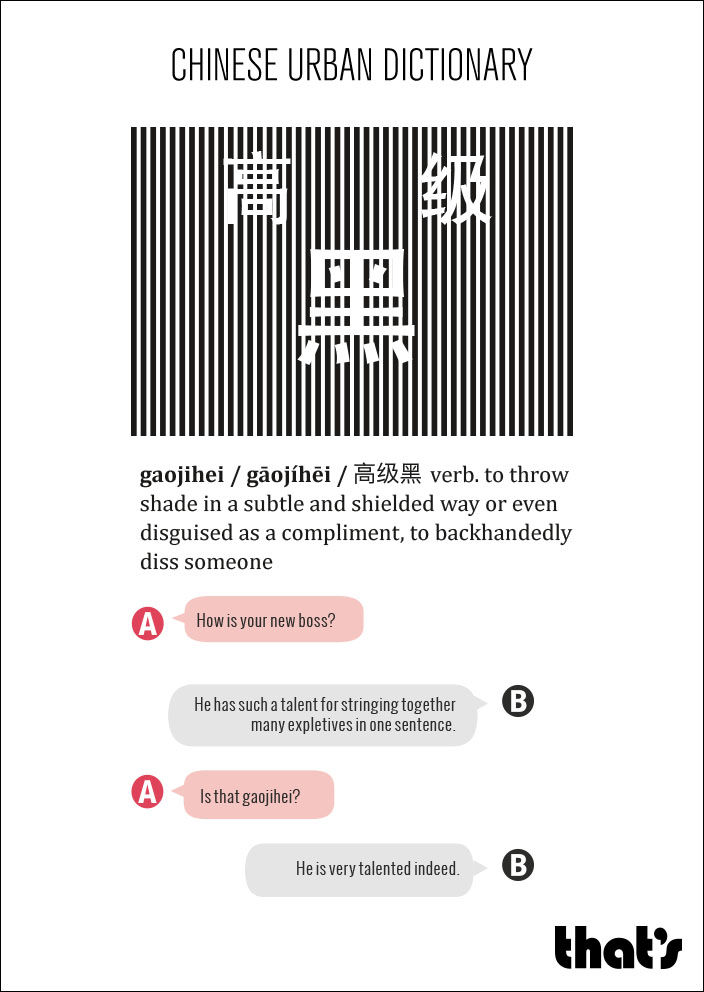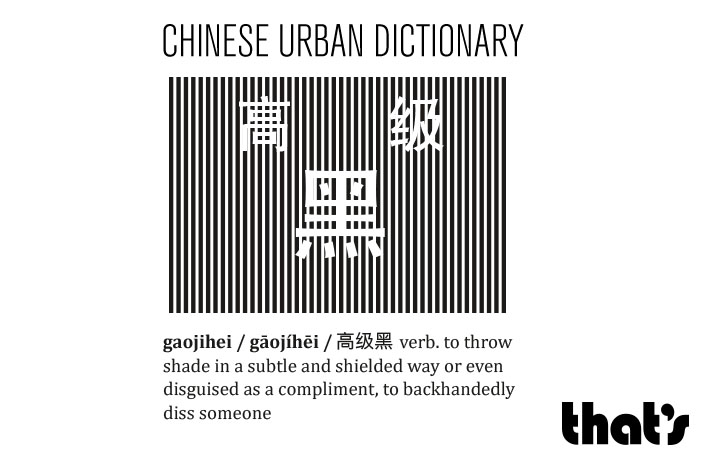gaojihei / gāo jí hēi / 高级黑 v. to throw shade in a subtle and shielded way or even disguised as a compliment, to backhandedly diss someone
A: How is your new boss?
B: He has such a talent for stringing together many expletives in one sentence.
A: Is that gaojihei?
B: He is very talented indeed.
Disdain – we all carry so much of it going about our daily lives. We carry disdain like a tumbler filled with freshly-brewed coffee, dishing it out little by little when we small talk, or pouring a big chunk of it out when we meet those who despise the same things as us. We carry disdain for people, companies, brands, TV shows, musicians and even snacks.
Shared disdain helps us make friends, bond with each other, form communities and define identities. It is of the utmost importance that we communicate it effectively. There are times where we can openly show our disdain with statements such as “U2 is a disgrace to music” or “I just can’t be friends with people who like tomato-based hot pot,” while other times we have to be more tactful.
And that is when gaojihei comes in handy. Literally meaning ‘high level blackening,’ gaojihei is the sophisticated art of expressing disdain in a subtle or tightly disguised fashion. Instead of saying “This movie is stupid,” say “How wonderful of them to make a movie just for imbeciles.” Instead of saying “I hate this album,” say “This album is so good, it redefines what music is.” Or “What a lovely dress, no wonder you continue to wear it so often.” You get it.
There are many theories as to why gaojihei became the default mode for expressing disdain, especially on the internet. Some say cultural emphasis on being nice forces people to shoehorn criticism into flattery, while others think the ‘manners education’ of “If you don’t have anything nice to say, then don’t say anything at all” is to blame. Either way, the result is that the language is always seemingly positive, but not the sentiment – and it’s important to listen carefully.
Conversation is the playground of the wits. Always playing it straight can get boring. So, the next time you feel like dissing something, approach it in a more creative way and add a few curve balls to keep your audience on their toes!

Read more Chinese Urban Dictionary






















0 User Comments